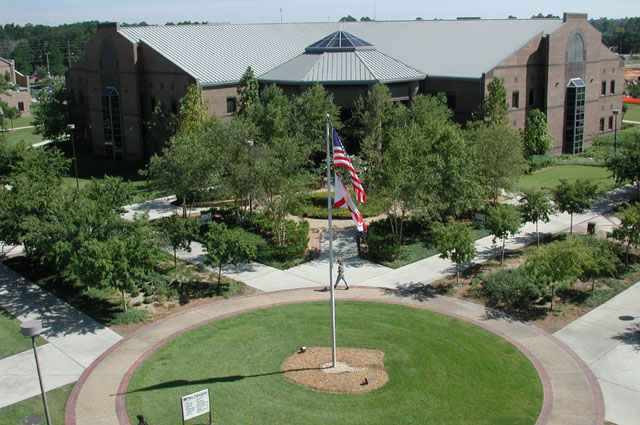Why are so many college students failing to gain job skills before graduation?
By Jeffrey J. Selingo - January 26

If you watch college sports on television, you’ve probably seen the ad for Enterprise Rent-A-Car featuring former college athletes working behind the counter at your nearby Enterprise location. Enterprise – which hires more entry-level college graduates annually than any other company in the U.S. — likes recruiting college athletes because they know how to work on teams and multitask.
“We see a lot of transferable skills in athletes,” Marie Artim, vice president of talent acquisition at Enterprise, told me.
Even so, Enterprise, like many employers, still finds today’s college graduates severely lacking in some basic skills, particularly problem solving, decision making, and the ability to prioritize tasks.
“This is a generation that has been ‘syllabused’ through their lives,” Artim said, referring to the outline of a class students receive at the beginning of a college course. “Decisions were made for them, so we’re less likely to find someone who can pull the trigger and make a decision.”
Bosses, of course, have long complained that newly minted college grads are not ready for the world of work, but there is a growing body of evidence that what students learn — or more likely don’t learn — in college makes them ill-prepared for the global job market. Two studies in just the past few weeks show that the clear signal a college degree once sent to employers that someone is ready for a job increasingly has a lot of noise surrounding it.
One study is the result of a test administered to 32,000 students at 169 colleges and universities. It found that 40 percent of college seniors fail to graduate with the complex reasoning skills needed in today’s workplace. The test, the Collegiate Learning Assessment Plus, is given to freshmen and seniors and measures the gains made during college in critical thinking, writing and communication, and analytical reasoning.
The results of the test found little difference between those students who graduated from public colleges and those who went to private schools. Not surprisingly, students who graduated from the best colleges did better than everyone else on the test as seniors, but their gains since taking the test as freshmen were actually smaller than those students who graduated from less elite schools.
The big difference between the skills of graduates depended on their college major: Students who studied math and science scored significantly higher than those who studied in the so-called helping and service fields, such as social work, and in business, which is the most popular college major.
A second study released this month found a similar disconnect between what employers need and the readiness of college seniors. In a pair of surveys by the Association of American Colleges & Universities, would-be graduates said college armed them with the skills needed for the job market. But employers disagreed. On a range of nearly 20 skills, employers consistently rated students much lower than they judged themselves. While 57 percent of students said they were creative and innovative, for example, just 25 percent of employers agreed.
read the rest of the article here:
www.washingtonpost.com/news/grade-point/wp/2015/01/26/why-are-so-many-college-students-failing-to-gain-job-skills-before-graduation/

If you watch college sports on television, you’ve probably seen the ad for Enterprise Rent-A-Car featuring former college athletes working behind the counter at your nearby Enterprise location. Enterprise – which hires more entry-level college graduates annually than any other company in the U.S. — likes recruiting college athletes because they know how to work on teams and multitask.
“We see a lot of transferable skills in athletes,” Marie Artim, vice president of talent acquisition at Enterprise, told me.
Even so, Enterprise, like many employers, still finds today’s college graduates severely lacking in some basic skills, particularly problem solving, decision making, and the ability to prioritize tasks.
“This is a generation that has been ‘syllabused’ through their lives,” Artim said, referring to the outline of a class students receive at the beginning of a college course. “Decisions were made for them, so we’re less likely to find someone who can pull the trigger and make a decision.”
Bosses, of course, have long complained that newly minted college grads are not ready for the world of work, but there is a growing body of evidence that what students learn — or more likely don’t learn — in college makes them ill-prepared for the global job market. Two studies in just the past few weeks show that the clear signal a college degree once sent to employers that someone is ready for a job increasingly has a lot of noise surrounding it.
One study is the result of a test administered to 32,000 students at 169 colleges and universities. It found that 40 percent of college seniors fail to graduate with the complex reasoning skills needed in today’s workplace. The test, the Collegiate Learning Assessment Plus, is given to freshmen and seniors and measures the gains made during college in critical thinking, writing and communication, and analytical reasoning.
The results of the test found little difference between those students who graduated from public colleges and those who went to private schools. Not surprisingly, students who graduated from the best colleges did better than everyone else on the test as seniors, but their gains since taking the test as freshmen were actually smaller than those students who graduated from less elite schools.
The big difference between the skills of graduates depended on their college major: Students who studied math and science scored significantly higher than those who studied in the so-called helping and service fields, such as social work, and in business, which is the most popular college major.
A second study released this month found a similar disconnect between what employers need and the readiness of college seniors. In a pair of surveys by the Association of American Colleges & Universities, would-be graduates said college armed them with the skills needed for the job market. But employers disagreed. On a range of nearly 20 skills, employers consistently rated students much lower than they judged themselves. While 57 percent of students said they were creative and innovative, for example, just 25 percent of employers agreed.
read the rest of the article here:
www.washingtonpost.com/news/grade-point/wp/2015/01/26/why-are-so-many-college-students-failing-to-gain-job-skills-before-graduation/






0 Comments:
Post a Comment
<< Home